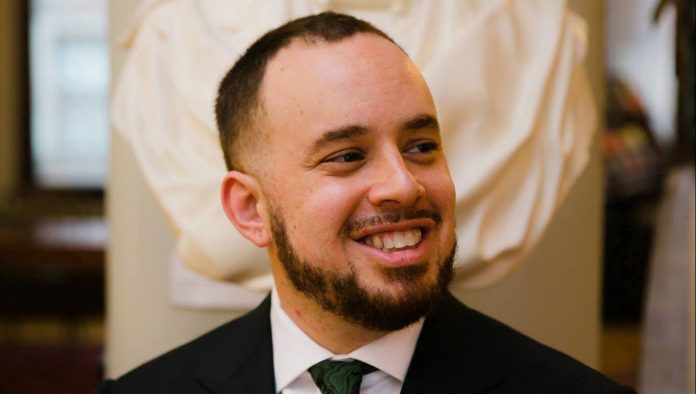Jay Shifman founded Ornelas Station Consulting after making it through some terrible experiences in his life. Because he was diagnosed with a severe mental health illness, he had to take several drugs. As his condition grew worse, his doses grew higher and higher.
During his early 20s, Jay Shifman began taking potentially lethal doses of one drug and misusing others. After hitting rock bottom, Jay decided that he had to do something. He swore to withdraw from all prescriptions, and over time, his symptoms completely disappeared.
Jay Shifman eventually succeeded at rebuilding his life, and spent a decade working in the nonprofit and political sectors. He saw that change was needed in these sectors, and so he founded Ornelas Station Consulting. The company aimed to fill the need for other organizations who needed training to “craft their own strategy or fundraise effectively—skills that would benefit them for years to come.”
At Ornelas Station Consulting, Jay Shifman wants organizations to understand that no one knows their mission better then themselves. So, the firm wants their clients to “better utilize the skills to effectively deliver on that mission.” Today, Jay Shifman and Ornelas Station Consulting helps organizations formulate effective fundraising strategies, engage stakeholders, create a new strategic plan, among others.
Aside from his work as principal consultant at Ornelas, Jay Shifman also hosts and produces the podcasts “Choose Your Struggle” and “Rock Bottom Storytellers.” You can check them out on iTunes, Spotify, and Stitcher.
Check out more interviews with mental health advocates here.
Jerome Knyszewski: Thank you so much for joining us! Can you tell us the “backstory” about what brought you to this specific career path?
Jay Shifman: Recently, I decided to leave a job I enjoyed at an organization I loved to follow my passion working to help create a systems change in addiction. I believe, as someone who is nine years in recovery, that I have a unique story to tell and the privilege of a platform that can help advance the conversation around mental health and addiction and reduce the stigma associated with the two. I spent my early 20s suffering through a terrible prescription pill addiction that was fostered on me by, I’ll say nicely, an overzealous psychologist and a too-willing psychiatrist. I believe they truly wanted the best for me but their way of showing that was to turn me into an addict. It was a horrible time. I honestly don’t know why or how I didn’t die from my struggle. But it’s made me stronger in the long run and gave me the privilege of being able to speak about this issue intimately.
Jerome Knyszewski: According to Mental Health America’s report, over 44 million Americans have a mental health condition. Yet there’s still a stigma about mental illness. Can you share a few reasons you think this is so?
Jay Shifman: I simply don’t understand this. Our culture is moving progressively toward embracing and accepting people for who they are on so many issues, yet when it comes to mental health and addiction, the stigma remains. Although I don’t want to be completely pessimistic. I do think we’re making progress.
Very little angers me more than when I experience people or organizations defending this harmful, dangerous and outdated thinking. There is a well-respected treatment facility here in Cincinnati that actually advertises their discretion in radio spots. Look, I get that some people still worry about what others will think if they admit to suffering from addiction or mental health issues, but we should be reassuring them that it’s perfectly normal and acceptable, instead of victim-shaming them and directly reinforcing the idea. By suggesting discretion is important, you are acknowledging the validity of the stigma; that there’s something immorally wrong with them. That sort of thing… it’s so harmful! There’s nothing wrong with self-care and treating mental health. Those deciding to seek help are strong and brave and deserve nothing but love and support!
There’s nothing wrong with self-care and treating mental health. Those deciding to seek help are strong and brave and deserve nothing but love and support!
Jerome Knyszewski: What are your 6 strategies you use to promote your own wellbeing and mental wellness? Can you please give a story or example for each?
Jay Shifman: I try to practice good self-talk. My wife says I tend to spiral sometimes, which I think is very human. A couple things go wrong then all-a-sudden we notice more things going wrong. So I try to force myself to focus on positive things and usually the spiraling stops. If that doesn’t work, the Beatles are always helpful. Throw on Sgt. Peppers or Abbey Road and try not to smile. Here comes the sun…
Also, this is a big one for me, I give hugs. Only to willing people of course. Seriously never touch someone who doesn’t want to be touched, I shouldn’t have to say that, but you know. Anyway, a hug is the most interpersonal contact we’ll have on a day to day basis with anyone except our partner. It’s a way to say hey, I’m here, and it’s therapeutic too. I got married recently and I was worried about those horror stories you hear all the time like ‘oh my wedding was a blur.’ So I did some research and the number one tip was to give as many hugs as possible. It helped so much! Each hug slowed down my wedding for that moment and helped me stay in the present. And I felt a personal connection to all of those great people who came out on a cool Cincinnati night to celebrate my wife’s and my love. It was wonderful.
Finally, I’ll say this because it’s such good advice and it’s so true. We live in a time where it’s so easy to get caught up in the falseness of it all. If you spend any time on social media, it’s easy to think ‘wow, my life sucks’ because we only get the top of the top. Few people post a picture of them sitting alone or a status about getting chewed out by their boss. Only the good stuff. It’s nice, and it’s fun, but it can be painful if you’re struggling. Just remember, we’re all humans and we all go through ups and downs. When I tried to take my own life while I was seriously struggling with my addiction, it was because I decided this was my life, now and forever. Which is just wrong. I read a study recently that stated the average person, when asked to plan or think about the future, imagines, on average, four and a half years. For an addict, that number is nine days. Nine days! It’s easy to understand why some suffering will struggle to believe anything will ever get better if you recognize their future, to them, is nine days. They’re probably right. Nine days won’t be much better. But, four and a half years? Or, in my case, nine years? It’s definitely better. Today I’m happy, healthy and proudly telling my story with a semi-colon tattooed on my right leg and a wonderful, supportive wife who is my world. Your story is never truly over. You are never alone! Reach out and someone will respond.
Your story is never truly over. You are never alone! Reach out and someone will respond. Jay Shifman, of Ornelas Station Consulting
Jerome Knyszewski: What are your favorite books, podcasts, or resources that inspire you to be a mental health champion?
Jay Shifman: My must reads include Dopesick and Dreamland, both of which illustrate this issue better than most. I can’t say enough good about the work of Beth Macy (Dopesick) and Sam Quinones (Dreamland), who dove headfirst into this topic and came back up with defining tapestries of good that brought the issue to public notice in a way that allowed those who haven’t suffered to understand. They are both masters. I got to meet Sam last year and I am so forever grateful to him for what he’s doing. As far as podcasts, I enjoy Let’s Talk, Drugs Addiction and Recovery, and The Addiction Podcast, to name a few.
Oh, and a quick shout-out to Lin Manuel Miranda. He’s incredible! The guy was a great actor (go back and watch later seasons of House) and has the skills to be a headline rapper, but decided he wanted to educate and tell stories. Then, boom, Hamilton! I read an interview with him in New York Magazine recently that has stuck with me. He was talking about the new Mary Poppins movie, in which he plays the Dick Van Dyke character. The interviewer said to him something alone the lines of ‘I’m sure taking this role was easy for you right? I mean, it’s every kid’s dream to be in Mary Poppins and to play the role formerly held by Dick Van Dyke, how can you get any better?’ And he said ‘Actually, it was hard for me. I really debated taking it. Because I can’t kid myself anymore. I can’t say I’m taking these roles to pay my bills; Hamilton pays my bills! So I had to decide if this was really something I wanted to do; if it was something that would make me happy.’ I mean, wow! When I was deciding to move on from my job and follow my passion, I kept coming back to this interview. So thank you to Lin Manuel Miranda!
Jerome Knyszewski: Thank you so much for these insights! This was so inspiring!
Jay Shifman: Thanks for doing this! We need more people to talk about this issue!





